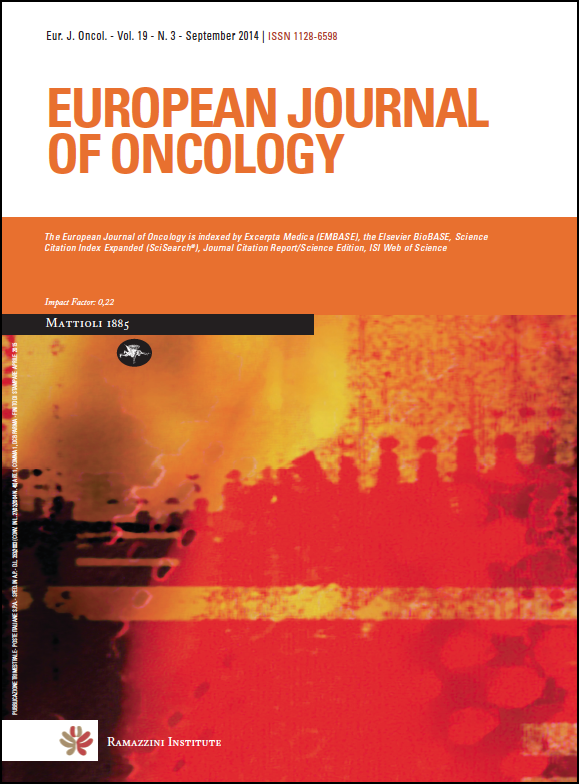Use of non-conventional medicines by cancer patients
Keywords:
non-conventional medicines, drug interaction, cancer therapiesAbstract
Background: The number of cancer patients undergoing anticancer treatment who concomitantly take non-conventional medicines is increasing. Among cancer patients the use of non-conventional medicines, often in the form of self-medication, is intended to counteract the side-effects of cancer treatment, alleviate symptoms or strengthen the immune system. Aim of the work: The present study aimed to evaluate how widespread the practice is and to identify the possible interactions between non-conventional medicines and cancer therapies. Methods: This research was an observational prospective study of about 10 weeks. One hundred and forty-three patients undergoing cancer treatment in our day hospital were interviewed about their use of non-conventional medicines. Results: 35.7% (51/143) of patients reported taking vitamin or mineral supplements, 22.4% (32/143) take medicinal herbs and 4.9% (7/143) homeopathic remedies. 75% (24/ 32) using medicinal herbs were <64 years old and 78.1% of such patients (25/32) had a higher level of education. These data are in accord with the results from a survey carried out on cancer patients (n=1498) at a hospital in Coventry, UK, where the prevalence of medicinal herb use was 19.7% (95% CI: 17.4–22.1; n= 223). Conclusion: A significant number of cancer patients undergoing treatment with anticancer drugs also make use of non-conventional medicines, medicinal herbs being the most commonly used. Clinicians and patients should thus be educated as to the proper use of medicinal herbs to minimise the risk of related interactions.Downloads
Published
Issue
Section
License
OPEN ACCESS
All the articles of the European Journal of Oncology and Environmental Health are published with open access under the CC-BY Creative Commons attribution license (the current version is CC-BY, version 4.0 http://creativecommons.org/licenses/by/4.0/). This means that the author(s) retain copyright, but the content is free to download, distribute and adapt for commercial or non-commercial purposes, given appropriate attribution to the original article.
The articles in the previous edition of the Journal (European Journal of Oncology) are made available online with open access under the CC-BY Creative Commons attribution license (the current version is CC-BY, version 4.0 http://creativecommons.org/licenses/by/4.0/).
Upon submission, author(s) grant the Journal the license to publish their original unpublished work within one year, and the non exclusive right to display, store, copy and reuse the content. The CC-BY Creative Commons attribution license enables anyone to use the publication freely, given appropriate attribution to the author(s) and citing the Journal as the original publisher. The CC-BY Creative Commons attribution license does not apply to third-party materials that display a copyright notice to prohibit copying. Unless the third-party content is also subject to a CC-BY Creative Commons attribution license, or an equally permissive license, the author(s) must comply with any third-party copyright notices.

